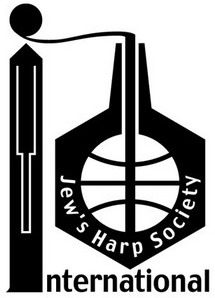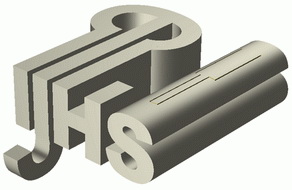IJHS society bylaws
1. Name and Office
The Society will be known as the ‘International Jew’s Harp Society (IJHS)’, a legal entity as described in article 60 ff. of the Swiss Civil Code (Article 60 ff. des Schweizerischen Zivilgesetzbuches) with a registered office in Neuchâtel, Switzerland.
2. Purpose
The Society’s purpose is to promote the jew’s harp and to make efforts to maintain its production and playing traditions worldwide. Its main aims are:
- To bring together all who share a common interest in the jew’s harp;
- To exchange and spread knowledge of every kind about the jew’s harp from the past and present;
- To encourage national and global activities.
3. Jew’s Harp Festival and Congress
The Society supports in non-financial ways the implementation of International Jew’s Harp Festivals and Congresses, which are supposed to take place about every three years. The venue for each Jew’s Harp Festival and Congress will be established at the preceding Congress by the General Assembly. Regional or National groups or festival organisers will propose their venue and procure funding as necessary. Public events will be held in English, where translations for non-English speakers will be provided, when possible.
4. Program Committee
A Program Committee for the Jew’s Harp Festival and Congress will be assigned by the President. This Committee is formed of a Chairperson and two further members. The Chairperson acts in coordination with the local organisation of the Jew’s Harp Festival- and Congress. The Program Committee proposes the papers that will be presented at the Congress and organises lectures, taking into account the measures proposed by the local organising program. The Program Committee will advise the local organisers in the design of the festival program.
5. Publications
The IJHS will endeavour to publish an online only ‘Journal of the International Jew’s Harp Society’ on a regular basis, aiming to publish once a year, dependent upon articles submitted. An additional E-Mail-Newsletter will be published as and when required. Members without access to internet will be sent the Newsletter in printed form upon request. A Publications Committee supports and advises the Editor of the Journal. The Journal and Newsletter will be published in English.
6. Membership
Every individual or legal person with an interest for the Society’s purposes can become a member of the Society. A request for membership can be sent to the Treasurer or a submission can be done directly on the Society’s website. As soon as the request is submitted, the membership will automatically be initiated once the fee has been transferred into the Society’s account.
It is possible to end the membership of the Society at any time, and the Treasurer should be informed in writing or by E-Mail. For the year in which the membership is ended the full membership fee of that year is due. Members who damage either the Society’s interests or reputation, can be expelled from the Society by the Board.
The annual membership fees shall be due on the First of January. In case of failing to pay the memberships fee before the year is over, the membership is automatically ended and the Treasurer will erase the member from the list of members.
7. Funding
The Society’s revenue sources are:
- Membership fees of the Society’s members
- Sponsoring and Subsidies
- Gifts / Donations
- Proceeds from events and from the selling of products of the IJHS
The yearly fee for membership will be $30.00 or its equivalent in other currencies.
After examining the circumstances, the Executive Board has the discretion to reduce or even dismiss the membership fee of a member in the case of a member being not capable of paying the fee. All other members have the possibility to pay additional $30.00 or more to enable full membership for members that cannot pay the fee.
8. Organisation
The Society has the following bodies:
- The General Assembly
- The Board
- The Executive Board
- The Revision
The Society’s bodies are voluntary and members are not entitled to make claims for compensation or reimbursement of expenses and cash payments without prior request to and approval by the Executive Board.
9. General Assembly
The Ordinary General Assembly takes place during the International Congress and Festival. The date of this Assembly will be made known to the members at least three months before the event.
The Executive Board will invite the members to submit papers in writing or by E-Mail at least 30 days before any Congress, where any submissions should indicate items for the Agenda. Motions of members must in principle be made known to the Board, ten days before the Assembly, in writing or by E-Mail. In regard to any items not announced for the Agenda, the General Assembly will decide if it should be discussed at the beginning of the meeting.
The convocation of an Extraordinary General Assembly can be called for by the Executive Board, or by one fourth of the Board members or ordinary members, clearly stating the details of the purpose.
10. Tasks of the General Assembly
The General Assembly has the following tasks:
- Approval of the minutes from last General Meeting.
- Approval of the Annual Account and Auditor Reports since last General Assembly.
- Fixing of the yearly membership fee.
- Changes in the Bylaws.
- Voting for the Board, the Executive Board and an Auditor
- Decide on the venue for the next Festival/Congresses
- Resolution on requests from members and from the Board.
- Vote upon the dissolution of the Society.
11. Ballot
Should there be urgent issues that need to be addressed before the next Ordinary General Assembly, the Executive Board will hold a ballot amongst all Board members. The votes will be collected through E-mail or in writing for those members without access to internet.
The outcome of a ballot will be decided by a majority of the votes.
12. Board
The obligations of the Board are all those which are not, according to law or Bylaws, given to the General Assembly or the Executive Board. The Board may delegate certain tasks to individual members of the Board. The Board approves the annual financial statement and the budget for the next year.
The Board consists of the Executive Board and up to 35 further members. The Executive Board remains in office until the next ordinary General Assembly. For ordinary Board Members, half will be replaced or re-voted on to the Board at every General Assembly. The President determines prior to each election a Nominations Committee of three members.
In the case of a replacement of a Board Member before the next General Assembly, this will be done by means of a ballot.
13. Board Meetings
Board Meetings can also be held by telephone (in Conference-mode) or Skype and decisions can also be confirmed by E-mail or in writing.
14. Executive Board
The Executive Board is the legal representative of the Society, is in charge of the running business of the Society and represents the Society externally. The Executive Board consists of the President, the General Secretary and the Treasurer. The Executive Board may delegate its tasks partially or completely.
15. Presidency
The President has the following obligations:
- Is responsible for the overall coordination and presentation of the IJHS.
- Chairs the Board Meetings and the General Assembly.
- Appoints and advises the Program Committee and the Nomination Committee.
- Is chief mediator and moderator in case of difficulties or disagreements.
16. Secretary General
The Secretary General is responsible for the following obligations:
- Is responsible for all ongoing businesses that are given to him by the Executive Board.
- Is responsible for all current information to the members.
- Is responsible for the Newsletter, and ensuring that the website IJHS-homepage is up to date.
- Is responsible for promotion and marketing of the IJHS.
17. Treasurer
The Treasurer has the following obligations:
- Manages the Society’s assets in consultation with the Executive Board.
- Takes care of all payment transactions.
- Receives payments for the Society and executes payments that are approved by the Executive Board for publications, communications and other necessary payments within the budget approved by the Executive Board.
- Calls for membership fees.
- Manages the members list and erases members from that list when membership fees are not paid in time.
- Checks and in consultation with the Executive Board decides over requests for remission of the membership fees of members who are not able to pay the contributions.
- Prepares the annual financial statements as well as the budget for the coming Society year.
- Is responsible for the collection and payments of any taxes due.
18. Revision
The General Assembly chooses an Auditor, who must be a non-member of the Society. The Auditor checks the accounts and the financial statements and provides an Annual Audit Report for the Board. The term of office of the Auditor remains in place until the next General Assembly. Should there be a requirement for the office of an Auditor to be appointed earlier then the duration of this term, then the position will be appointed through a ballot.
19. Abolishment
The Society can be dissolved by resolution of the General Assembly or through ballot. After the actual dissolving of the Society, remaining assets are to be transferred to a successor organisation. Any remaining assets cannot be distributed amongst members.
06.12.2020
Membership
Annual membership $ 30. You may also wish to make a donation for the IJHS using the Paypal 'Donate' button.


The IJHS has two official logos. They were designed by Tadagawa Leo in 2004.
The flat one was given its final form by Kojima Megumi, and the 3D one by Kojima Ryuji.


